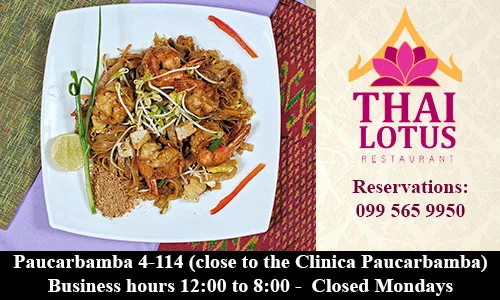Rob’s first rule for examining ‘scientific studies’ about food
By Rob Gray
There is no question I get asked more often than whether something you eat or drink (coffee, chocolate, bread, meat etc.) is good for you. The person asking the question is often bewildered by the back and forth articles in the press, one day saying that a particular food promotes health, the next day that that same food is dangerous and should immediately be eliminated from your diet. Confusion sets in as both purport to use “Scientific Studies” to back up their conclusions. So, how is this possible? They can’t both be right. Right?
press, one day saying that a particular food promotes health, the next day that that same food is dangerous and should immediately be eliminated from your diet. Confusion sets in as both purport to use “Scientific Studies” to back up their conclusions. So, how is this possible? They can’t both be right. Right?

Comedian John Oliver
As you can see in the picture to the right, John Oliver is spoofing the same bewildering point. Fear not, however, as there is a simple fact that unlocks the mystery of this apparent conundrum:
All foods contain both nutrients (things the body needs) and anti-nutrients (things that are harmful to the body). This is a part of nature and promotes the survival of both the species doing the eating and the species being eaten.
Foods intended for human consumption contain macro and micro nutrients that provide the body with what it needs. These same foods also contain harmful substances that are intended to discourage other organisms from eating it or at least keep the organism from being eaten into extinction. In addition, we must recognize that there are countless man-made chemicals that get into our food supply either by accident or as a part of the food processing itself.

Scientist at work.
With this as background we can now look at how “Science” is used (or more accurately abused) in examining human nutrition. The bulk of the “Scientific Studies,” that seek to prove the goodness or badness of a particular food, base their conclusions on the existence of a specific compound or set of compounds in the food that are first extracted and then determined to be healthy or dangerous. This approach is commonly referred to as reductionist thinking or using reductionist methods to prove a point. Unfortunately, using these methods proves nothing and relegates all of these studies (whether you agree or disagree) to the “junk science” bucket, which isn’t actually science at all. Thus, my first rule for examining “Scientific Studies”:
Rule #1: Conclusions based on studies using reductionist methods are highly suspect.
Reductionist methods typically look to find and isolate a healthful (good) or unhealthful (bad) compound or set of compounds in the food being researched. For example, it is common knowledge that coffee contains a number of antioxidants that are “known” to be good for you (at least in isolation). Armed with this reductionist knowledge, a researcher can thus conclude that coffee is good for you as it contains antioxidants that are good for you. (Seems perfectly reasonable, right?) On the other hand, another reductionist researcher could focus on the caffeine, which science has labeled as a drug with potentially harmful effects to the body and conclude the exact opposite – that coffee is bad for you and should be avoided. (Seems perfectly reasonable…wait…Houston there’s a problem. They can’t both be right.)
 I expect that when presented in this manner, you can see the serious flaw in the reductionist methods employed in both examples above. The fact is that when you consume coffee, you consume the good, the bad, and a whole bunch of other stuff that was not analyzed. Both of these examples used an extracted chemical compound they had isolated (good or bad) as a proxy for whole coffee, relegating both studies to be meaningless. It is well understood that isolated compounds often react very differently in the body than when consumed as a part of what we actually eat or drink. Taken to its extreme, imagine I take a bottle of poison, add some vitamin C to it, and now claim I have a product that is good for you. I mean, it has vitamin C in it for goodness sake, and that is good for you, right?
I expect that when presented in this manner, you can see the serious flaw in the reductionist methods employed in both examples above. The fact is that when you consume coffee, you consume the good, the bad, and a whole bunch of other stuff that was not analyzed. Both of these examples used an extracted chemical compound they had isolated (good or bad) as a proxy for whole coffee, relegating both studies to be meaningless. It is well understood that isolated compounds often react very differently in the body than when consumed as a part of what we actually eat or drink. Taken to its extreme, imagine I take a bottle of poison, add some vitamin C to it, and now claim I have a product that is good for you. I mean, it has vitamin C in it for goodness sake, and that is good for you, right?
Speaking of Vitamin C, one should be equally skeptical about nutritional supplements. Science has demonstrated the body’s need for a variety of nutrients. These nutrients often require a complex web of availability with other nutrients. It is true that in some cases the body is actually deficient in a specific vitamin or mineral and requires temporary supplementation. If supplementing doesn’t help, however, (and it often doesn’t), then there is likely other nutrient pieces of the puzzle missing which can be very difficult to pinpoint. And, if chronic supplementation becomes necessary, it is very possible that other diet and lifestyle habits are contributing to the deficiency. As far as your diet is concerned, however, there is little to contradict that the body would be better off eating the foods that contain the vitamins and minerals amongst the other nutrients contained in the food as opposed to supplements. And please understand, unnecessary consumption of vitamins and minerals is just extra work for the body to eliminate.
The challenge for researchers is that modern scientific studies generally require the isolation of a single variable in a highly controlled environment, where nothing else is changed, to prove that only that single variable could have been responsible for the result of the study. The reality is that we eat complex substances with hundreds or even thousands of different compounds. There is no basis for concluding that the nutrient that was isolated, extracted, and used in the study has the same effect (or any effect) on the body as when the entirety of the food is consumed. And, how would one prove their thesis if there were hundreds or even thousands of different parts gumming up the results? Oh, rest assured, the “Scientific Community” has other kinds of studies using different methods to confuse, I mean inform you.
Pay no attention to the “Scientists” behind the curtain trying to sell you on some reductionist nonsense that proves absolutely nothing. You’ve been warned.
________________

Rob Gray runs the Gran Roca Project, (www.granroca.net), a sustainable commercial permaculture farm on a landmark property in the Yunguilla Valley, southwest of Cuenca. High quality tree fruits, berries, and a large variety of both native and heirloom vegetables and herbs are produced with animals also integrated into the mix. He has recently started selling his fresh produce on the farm and in Cuenca.



















